East Asia Program
Convict Politics: Innocent Convicts and Unlawful Commoners in Early Chinese Empires (221 BCE-23 CE)
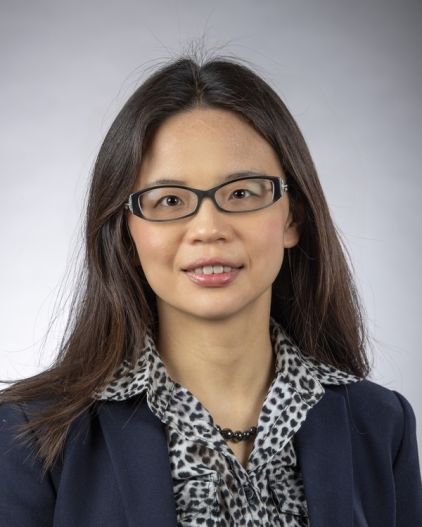
April 9, 2026
4:30 pm
Rockefeller Hall, 374
East Asia Program Lecture Series presents "Convict Politics: Innocent Convicts and Unlawful Commoners in Early Chinese Empires (221 BCE-23 CE)"
Speaker: Liang Cai, Ruth and Paul Idzik Associate Professor in Digital Scholarship of History, University of Notre Dame
Description:
This talk, based on newly mined data from newly unearthed manuscripts and traditional sources, explores convict politics in the early Chinese empires. Whereas a substantial number of bureaucratic personnel were convict laborers, assisting local officials, the central court reemployed numerous previously convicted individuals as high officials. The book argues that convict politics emerged because the mutual responsibility system and high-performance-oriented law extensively criminalized people, including the innocent. Paradoxically, the Western Han dynasty’s stringent criminalization of individuals was juxtaposed with redemption policies and frequent amnesties that excessively exonerated offenders, even the most heinous. The intellectual roots underpinning the harsh laws and the universal amnesties fundamentally embraced the same utopian ideal of a crime-free society. Although this dual practice of extensive criminalization and widespread pardoning fostered the population’s tolerance towards the political system, these practices were fraught with injustice and led to form Confucian deep-seated skepticism towards the law in Chinese tradition.
Speaker's Bio:
Dr. Liang Cai received her Ph.D. from Cornell University and currently serves as an associate professor of history at the University of Notre Dame. She specializes in Chinese political and intellectual history, with a focus on the Qin-Han dynasties (221 BCE - 23 CE). Dr. Cai's publications cover topics such as Confucianism, bureaucracy, law, social networks, and archaeologically excavated manuscripts. She has also collaborated with computer scientists on a digital humanities project aimed at creating structured biographical data and conducting social network analysis of early Chinese empires, particularly those in the Qin-Han period, which is considered the fountainhead of Chinese civilization.
Dr. Cai’s first book Witchcraft and the Rise of the First Confucian Empire contests long-standing claims that Confucianism came to prominence with the promotion of Emperor Wu in the Han dynasty. She argues that it was a witchcraft scandal in 91–87 BCE that created a political vacuum and permitted Confucians to rise to power, ultimately transforming China into a Confucian regime. Her book won the 2014 Academic Award for Excellence presented by Chinese Historians in the United States and was a finalist for the 2015 Best First Book in the History of Religions presented by the American Academy of Religion.
Her other selected publications appear in The Journal of the Royal Asiatic Society, the Journal of Asian studies and Law and History Review.
Dr. Cai’s second book, Convict Politics: From Utopia to Serfdom in Early China (221 BCE–23 CE) (Cambridge: Cambridge University Press), is scheduled for release in December 2025. This book seeks to stimulate deeper reflection on utopian thought and its perilous application in political practice.
About East Asia Program
As Cornell’s hub for research, teaching, and engagement with East Asia, the East Asia Program (EAP) serves as a forum for the interdisciplinary study of historical and contemporary East Asia. The program draws its membership of over 45 core faculty and numerous affiliated faculty, graduate, and undergraduate students from eight of Cornell’s 12 schools and colleges.
Additional Information
Program
Einaudi Center for International Studies
East Asia Program
Cornell Classical Chinese Colloquium with Rania Huntington
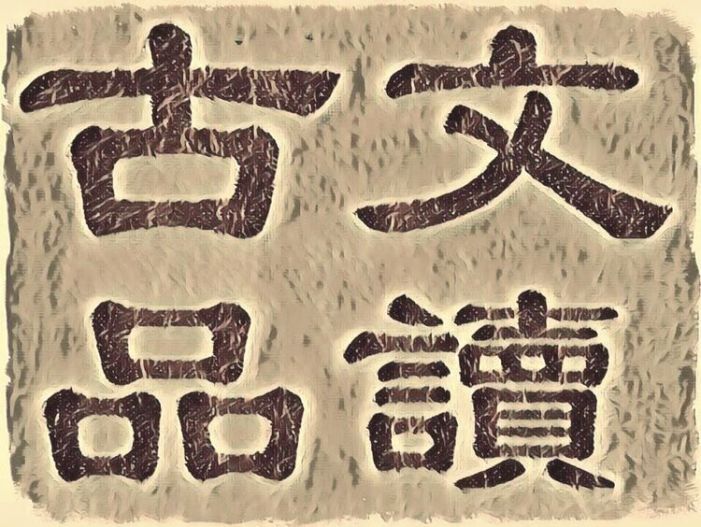
February 20, 2026
3:30 pm
Rockefeller Hall, 374
Speaker: Rania Huntington, Professor of Chinese Literature, University of Wisconsin-Madison
About Cornell Classical Chinese Colloquium
The group meets monthly during the semester to explore a variety of classical Chinese texts and styles. Other premodern texts linked to classical Chinese in Japanese, Korean, and Vietnamese have also been explored. Presentations include works from the earliest times to the 20th century. Workshop sessions are led by local, national, and international scholars. Participants with any level of classical Chinese experience are welcome to attend.
o At each session, a presenter guides the group in a reading of a classical Chinese text. Attendees discuss historical, literary, linguistic, and other aspects of the text, working together to resolve difficulties in comprehension and translation.
o No preparation is required; all texts will be distributed at the meeting.
o Refreshments will be served.
Additional Information
Program
Einaudi Center for International Studies
East Asia Program
Cornell Classical Chinese Colloquium with Tingting Xu

February 6, 2026
3:30 pm
Rockefeller Hall, 374
Speaker: Tingting Xu, Assistant Professor of Art History, University of Rochester
Title: Prince Chun, Photography, and Poetry: Visual and Textual Accounts of the Naval Drill of 1886
Abstract: The poem Singing while Sailing (Hanghai fangge) was written by Prince Chun Yihuan (1840~1891) on the 15th days of the Fourth lunar month in 1886, during his inspection of the naval drill of the Beiyang Fleet in the Bohai Sea. It was composed just after the Haiyan Steamer he was aboard left Dagu and entered the open Bohai Sea. The poem was included in Yihuan’s Verses of Navigation (Hanghai yincao) and was inscribed onto the monumental painting Riding the Wind by two court painters. The painting further incorporated facial details drawn from a group photograph of Yihuan and two accompanying inspectors, Li Hongzhang (1823~1901) and Shanqing (1833~1888), thereby integrating poetry, painting, and photography into a single commemorative ensemble. We will conduct a close reading of the poem, examining how image and text intertwine, how ideals and realities coexist, and how personal expression is woven into courtly narratives.
About Cornell Classical Chinese Colloquium
The group meets monthly during the semester to explore a variety of classical Chinese texts and styles. Other premodern texts linked to classical Chinese in Japanese, Korean, and Vietnamese have also been explored. Presentations include works from the earliest times to the 20th century. Workshop sessions are led by local, national, and international scholars. Participants with any level of classical Chinese experience are welcome to attend.
o At each session, a presenter guides the group in a reading of a classical Chinese text. Attendees discuss historical, literary, linguistic, and other aspects of the text, working together to resolve difficulties in comprehension and translation.
o No preparation is required; all texts will be distributed at the meeting.
o Refreshments will be served.
Additional Information
Program
Einaudi Center for International Studies
East Asia Program
The Current Governance: Distributed Chinese Television and Hydropower in the 1980s
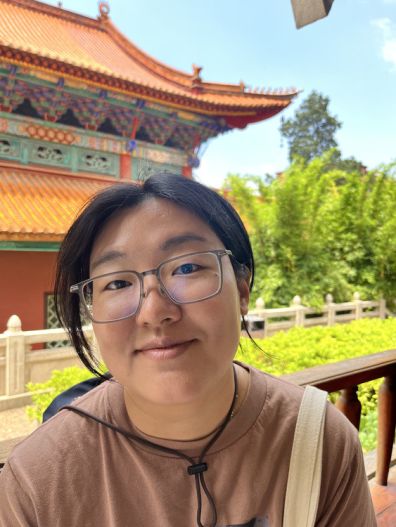
February 11, 2026
12:00 pm
Uris Hall, G-08
Speaker: Weixian Pan, Assistant Professor of Film & Media, Queen's University
Description:
How might the history of television and the history of energy development cross paths, inform, and complicate each other? This work revisits the formative decade of China’s economic reform, the 1980s, as one such moment when the expansion of televisual technology encountered demands for the redistribution of hydroelectric energy. By examining TV documentaries, popular writings/manuals on television infrastructure, and public documents of hydroelectric dams, I advance two intertwined arguments in this talk. First, the televisual played a prominent role in animating the imaginary and material distribution of natural and technologized currents. The televisual broadcasting of river documentaries in the early 1980s, such as Stories of the Yangtze (1983) and the regional Guangdong TV series Zhujiang Qing / Love for the Pearl River (1983), reshaped China’s major rivers as complex frontiers on screen for geopolitical aspirations, cultural power, and economic resource extraction on screen. Such televisual imaginations were built upon an overlapping development of airwaves, cable, and satellite transmission infrastructure. Second, while kinetic movements of river currents generate volumes of electricity that fuel the coastal economic frontline, infrastructure projects also produce new models for engineering and managing hydraulic resources upstream. I would elaborate on this dynamic through the early development of Lubuge Dam, the first internationally funded hydroelectricity project in the reform era, and a celebrated model for China’s hydraulic engineering and management revolution. These various cultural, technological, and managerial practices for governing and redistributing water, electrical currents, and televisual imaginations, therefore, constitute a distinct form of “current governance” that relies on destructive trans-regional resource dependency while continuing to extend this political-economic logic to new resource frontiers in recent years.
Speaker's Bio:
Weixian Pan is Assistant Professor in the Department of Film and Media at Queen’s University. She received her PhD in Film and Moving Image Studies at Concordia University in Montreal. Her research interests center on the politics of visuality, critical media infrastructure, and environmental media, specifically in the context of the People’s Republic of China. Her current book manuscript, Frontier Vision: Distributed Media in China’s Environmental Enclosure, offers a transhistorical view of the visual regimes developed from the mid-20th century to the early 21st century that recalibrate natural environments and their political promises. These medium-specific images and visuality operationalize various frontier-making projects, from socialist geological extraction, reform-era hydropower development, and techno-sovereignty in disputed oceans. Her work appeared in peer-reviewed journals such as Television and New Media, Culture Machine, Asiascape: Digital Asia, and is forthcoming in Feminist Media Histories, APRIA: ArtEZ Journal, and Journal of Chinese Cinemas. She was the 2024-2025 Luce/ACLS Early Career Fellow in China Studies. She is currently working on a collaborative video project on the hydraulic and infrastructural landscapes along the Pearl River in southern China.
About East Asia Program
As Cornell’s hub for research, teaching, and engagement with East Asia, the East Asia Program (EAP) serves as a forum for the interdisciplinary study of historical and contemporary East Asia. The program draws its membership of over 45 core faculty and numerous affiliated faculty, graduate, and undergraduate students from eight of Cornell’s 12 schools and colleges.
Additional Information
Program
Einaudi Center for International Studies
East Asia Program
Entangled Ecologies: Memory, Place, and the Camellia Forests of Jeju Island, South Korea
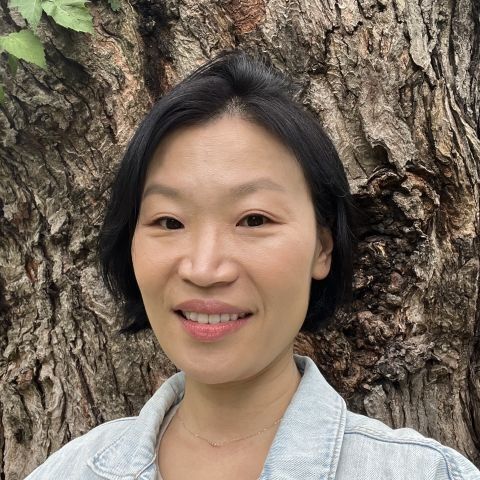
February 3, 2026
12:00 pm
Rockefeller Hall, 374 (Asian Studies Lounge)
Speaker: Jeongsu Shin, LB Korean Studies Postdoctoral Associate, Cornell University
Description:
This talk explores how memory, ecology, and place intertwine in the Giving Forest of Jeju Island, South Korea. Once a site of violence during the April 3rd Uprising and mid-twentieth-century state massacres, and later a space of afforestation and eco-tourism development, the Giving Forest has become a living archive of layered histories and ecological regeneration. Drawing on ethnographic research with Jejuan villagers, conservationists, and environmental activists, I trace how people engage with these landscapes as spaces of mourning, care, and resistance. By attending to the social and affective lives of the Giving Forest, this talk invites us to consider how multispecies relations hold memory and articulate claims to justice. In doing so, the talk illuminates how acts of remembering simultaneously reconstruct social and material worlds
Speaker's bio:
Jeongsu Shin is the LB Korean Studies Postdoctoral Associate in the East Asia Program at Cornell University. An ethnographer of Korea, her work bridges Environmental Studies, Asian Studies, and Science and Technology Studies. Her book project, Worldly Ecologies: Landscape, History, and Decolonial Environmentalism on Jeju Island, explores how environmental movements and ecological research in Jeju, South Korea, have shaped new understandings of Jejuan identity and autonomy, tracing their roots through colonialism, the Cold War, and neoliberal development to the present.
About East Asia Program
As Cornell’s hub for research, teaching, and engagement with East Asia, the East Asia Program (EAP) serves as a forum for the interdisciplinary study of historical and contemporary East Asia. The program draws its membership of over 45 core faculty and numerous affiliated faculty, graduate, and undergraduate students from eight of Cornell’s 12 schools and colleges.
Additional Information
Program
Einaudi Center for International Studies
East Asia Program
Japanese Conversation Hour
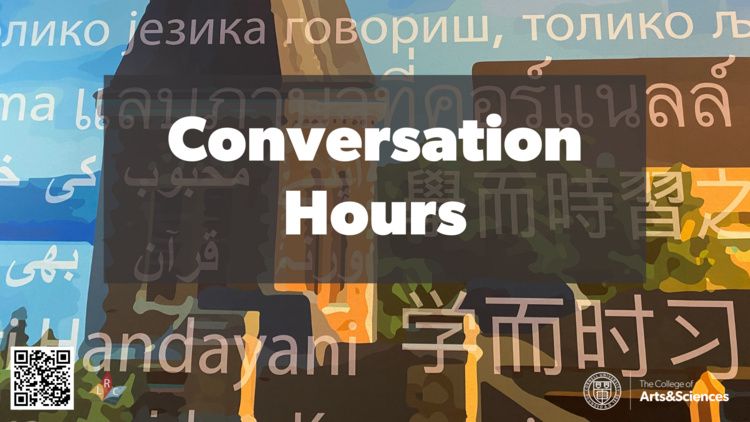
March 4, 2026
6:00 pm
Stimson Hall, G25
Come to the LRC to practice your language skills and meet new people. Conversation Hours provide an opportunity to use the target language in an informal, low-pressure atmosphere. Have fun practicing a language you are learning! Gain confidence through experience! Just using your new language skills helps you learn more than you might think. Conversation Hours are open to any learner, including the public.
Additional Information
Program
East Asia Program
Makiko Nishikaze: Chamber Works (CU Music)

February 14, 2026
7:30 pm
Barnes Hall
Join us for the final evening recital of guest composer Makiko Nishikaze’s visit to Cornell. A wide array of chamber works from throughout Nishikaze’s eclectic career will be performed by members of the Cornell community, as well as by the composer herself. From four-hands arrangements of J.S. Bach to forays in 9-piece open instrumentation, come experience the multiple facets of Nishikaze’s unique artistic voice.
This event is part of a week-long residency sponsored by the Department of Music, the Department of Asian Studies, the East Asia Program, the Cornell Center for Historical Keyboards, and Ensemble X.
Additional Information
Program
East Asia Program
Piano-ongoing: The Piano Music of Makiko Nishikaze (CU Music)
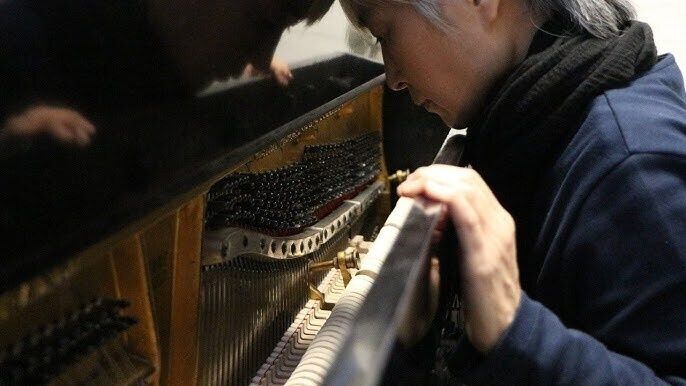
February 13, 2026
7:30 pm
Barnes Hall
As part of guest composer Makiko Nishikaze’s visit to Cornell, pianist Jack Yarbrough presents a lecture-recital on her vast output of piano music. Selections from over 30 years of creative engagement with the instrument will be performed with extensive commentary. The evening will conclude with the world premiere of Nishikaze’s newly commissioned piano work, piano-ongoing. This event is part of a week-long residency sponsored by the Department of Music, the Department of Asian Studies, the East Asia Program, the Cornell Center for Historical Keyboards, and Ensemble X.
Additional Information
Program
East Asia Program
Mother, Border, Other: Third World Internationalism and the Politics of Motherhood in Indonesia and China
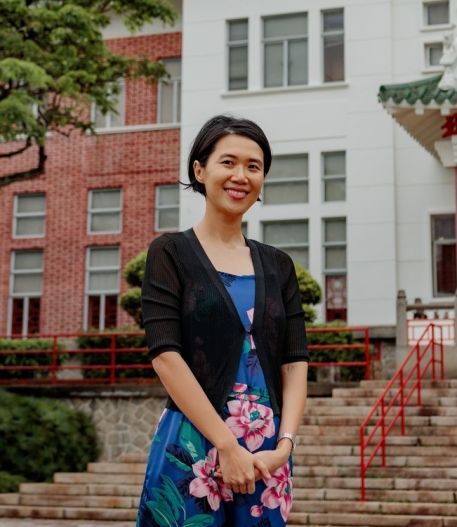
March 19, 2026
12:15 pm
Kahin Center
Gatty Lecture Series
Join us for a talk by Taomo Zhou, Associate Professor of Chinese Studies, National University of Singapore.
This Gatty Lecture will take place at The Kahin Center, 640 Stewart Ave. Lunch will be served. For questions, contact seapgatty@cornell.edu.
Abstract
Motherhood—one of the most important and yet mundane social institutions—is central to our understanding of the latter half of the twentieth century. This talk focuses on a left-wing Indonesian activist in the Afro-Asian movements, Francisca Casparina Fanggidaej (1925–2013), a mother of seven who endured decades of forced separation from her family. Based on a close reading of Fanggidaej’s diaries, personal letters, and oral history interviews with her family and friends, I discuss the politics of maternal absence in Indonesia and China—two leading countries in the Afro-Asian movements. I explore how these two countries shaped the public and self-perceptions of non-residential mothers through their welfare provisions and reproductive policies; and how a transnational figure like Fanggidaej navigated motherhood within frameworks of revolutionary anticolonialism in Indonesia, state socialism in China, and the global rise of capitalist neoliberalism, which ultimately displaced the Third World internationalist vision once championed by both nations. I argue that the fall of Third World internationalism signaled not only a missed opportunity to reconfigure global geopolitics, but also a lost chance to redefine motherhood—not as the individualized enterprise of the birth mother alone but as a communal effort involving an assemblage of caretakers regardless of kinship or gender.
About the Speaker
Taomo Zhou is an Associate Professor in the Department of Chinese Studies and Dean’s Chair in the Faculty of Arts and Social Sciences, National University of Singapore. Her first book, Migration in the Time of Revolution: China, Indonesia and the Cold War (Cornell University Press, 2019), won a Foreign Affairs “Best Books of 2020” award and an Honorable Mention for the 2021 Harry J. Benda Prize from the Association for Asian Studies. Taomo is currently working on her second book project tentatively entitled “Made in Shenzhen: A Global History of China’s First Special Economic Zone,” which is under advance contract with Stanford University Press. She is also researching on motherhood during the Cold War.
Additional Information
Program
Einaudi Center for International Studies
East Asia Program
Southeast Asia Program
Composers' Forum: Makiko Nishikaze
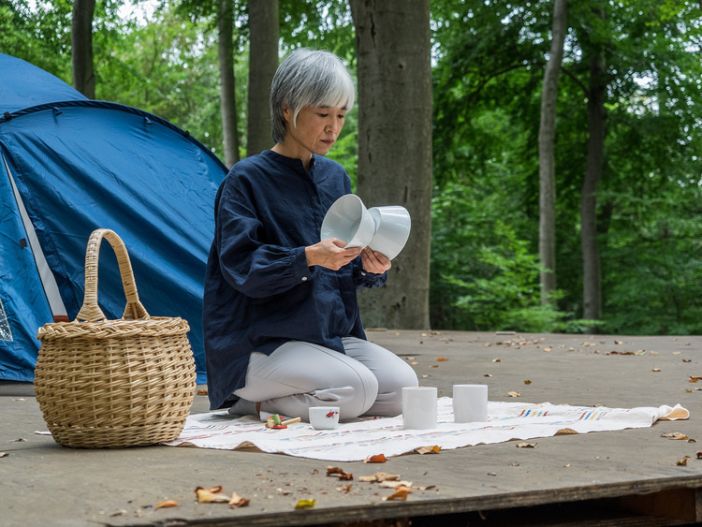
February 13, 2026
1:30 pm
Lincoln Hall, 316
Composer, pianist, performance, and video artist Makiko Nishikaze joins Cornell’s composers' forum to present on her music. Born in Wakayama, Japan and residing in Berlin, Germany, Nishikaze’s highly varied work comfortably spans mediums and practices, with a particular emphasis on spatial performance, early and modern keyboards and intermedial composition. She writes, “I have for some time been concerned with spatial music. The performance space itself is used as an instrument to unite visual and acoustic impressions in a single whole. I often extend the concept of my composition with performative-action, using everyday objects and materials, with which I explore the spatial dimensions visibly and audibly. My compositions are not directed at some eccentric or stunning result but are rather intended as a guide towards a higher level of the ability to listen.” This event is part of a week-long residency sponsored by the Department of Music, the Department of Asian Studies, the East Asia Program, the Cornell Center for Historical Keyboards, and Ensemble X.
Additional Information
Program
East Asia Program
